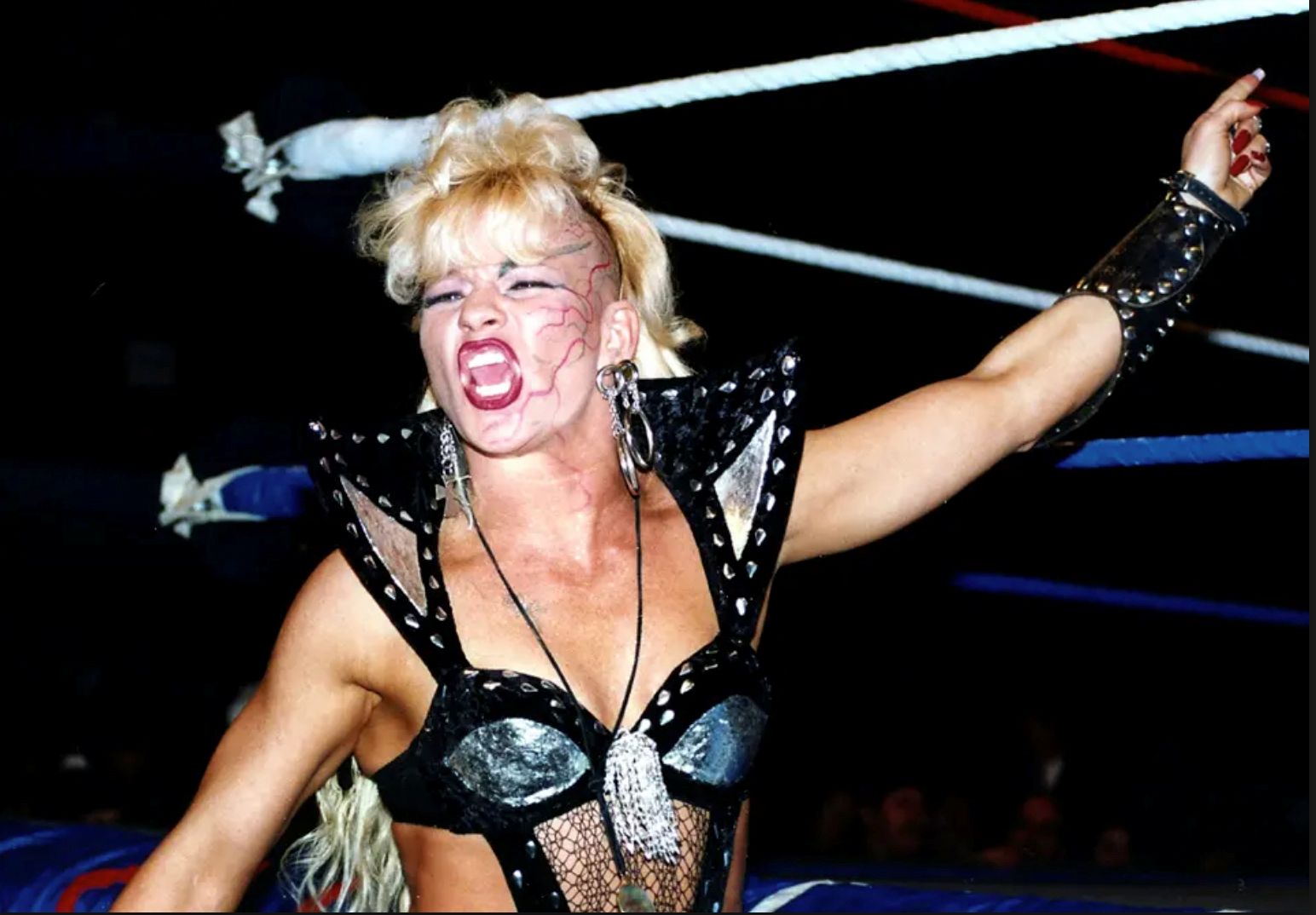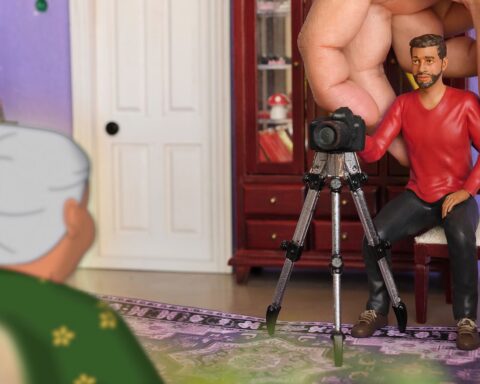Lunatic: The Luna Vachon Story
(Canada, 114 min.)
Dir. Kate Kroll
Thunder and heavy rain punctate interviews several times during Lunatic: The Luna Vachon Story. Each clap or thunderous downpour inspires the interviewees to tell director Kate Kroll that it’s the sound of Luna rumbling in response to their stories. It’s an intriguing through-line in the story of a woman known for her tempestuousness attitude.
Luna Vachon gets her due as the first woman of wrestling in this celebratory documentary. Or, rather, she gets her due again, as Lunatic offers the third Vachon documentary in four years after 2021’s The Last Villains chronicled the story of the family wrestling dynasty of which it is apart. (Her story also appears in the doc series Dark Side of the Ring.) Documentary ripostes have officially entered the ring.
The repetition, on one hand, works in Lunatic’s favour. Luna, born Gertrude “Trudy” Wilkerson, easily plays a supporting role in The Last Villains. That story generally concerns the legacy of her adoptive father, Paul “The Butcher” Vachon, and Luna’s uncle, Maurice “Mad Dog” Vachon. Interviewees in Lunatic note from the outset that women traditionally serve as an afterthought or get treated as a sideshow in professional wrestling, if they’re even considered at all. The feature-length focus on Luna may therefore serve as both a correction and a continuation of the previous documentary.
At the same time, the comparative brevity of Vachon’s life and career accounts for secondary screentime in The Last Villains. Having entered the family business years after Paul and Maurice, and having died in 2010 at age 48, Luna’s story has a shorter window. In the grand scheme of things, however, it arguably has more significance given the role she played in breaking through pro wrestling’s gender barrier one body slam at a time.
With all those factors said, however, Luna Vachon’s story might be better served by the prior documentary. Lunatic brings more screentime to Vachon’s story, but it’s not as engaging a tale and it hits many of the same story beats across a sprawling and leisurely 114-minute running time. (By comparison, The Last Villains covers the family saga in a lean and mean 93.)
Lunatic frequently proves repetitive, not simply by recycling notes of its predecessor, but by actually repeating the same talking points over, and over, and over. Even Paul Vachon, who passed away in 2024 at age 86, seems to wrestle with déjà vu. At one point, he asks Kroll if he already told her a particular story.
Kroll assembles an impressive roster of talking, including fellow women of wrestling. The director, a wrestler herself, obviously respects the women who gave their time by allowing all of them to share their stories. But this often means cutting between people saying the same thing.
The number of times that interviewees reflect upon Vachon’s unconventional upbringing—being raised by Paul amid a climate of violence, sex, and drugs—certainly illustrates the circumstances that inspired Luna’s tough personality and complicated psychology. But not everyone in a film needs to give the same talking point. (The recurring cuts to the same archival bits, notably a teenage portrait of Vachon, accentuate the repetitive nature.) For a wrestling doc, it lacks a punch.
The film works best when it uses Vachon’s story to illustrate the bigger picture of sexism in wrestling. The dynamic of treating women as a sideshow, as sexual objects, and lesser-than really underscores why Luna’s fiery personality still resonates. Some of the stories are pretty brutal, ranging from men putting feces in the women’s food to multiple allegations of sexual assault, including one particularly contentious night that multiple people decline to comment upon.
The story of the hard knocks that women faced in wrestling also adds some juice to the exploration of Luna’s mental health. The film invites an important conversation about living with bipolar disorder and what that means when it comes to raising a family, being on the road, and pursuing a volatile career in the spotlight. Perspectives from friends and colleagues a like portray a woman who wrestled with more demons outside the ring than within it.
While the film weathers intermittent showers, Kroll scores some good points when the film focuses on Vachon’s lightning and thunder. Many interviewees in Lunatic note that Vachon didn’t get the championship titles she deserved, but it makes clear that, without her, fewer women would likely get to hold the belt at all.











